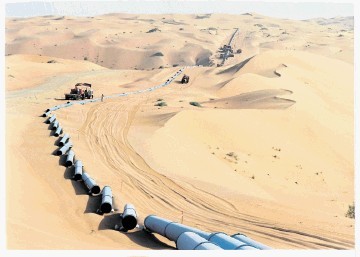
Saudi Arabia needs to take significant measures to curb public spending and reduce its reliance on oil revenue as it reacts to the last year’s slump in crude prices, according to the International Monetary Fund.
“There will be a need for significant fiscal consolidation to be able to bring spending and revenues more in line with each other,” Masood Ahmed, director of the Middle East and Central Asia department at the IMF, said in an interview in Dubai on Tuesday.
The world’s leading oil exporter must “ensure that there is an equitable sharing of oil wealth across future generations,” he said.
A decade of surging oil prices enabled Gulf Arab oil exporters led by Saudi Arabia to spend billions of dollars on infrastructure projects, social programs and foreign policy strategies.
Those days are now over, with oil’s rebound from a six-year low in March faltering amid speculation that a global supply glut will persist.
This year, Saudi Arabia’s $100 billion budget deficit will amount to 14 to 15 percent of gross domestic product.
The slump in revenues has coincided with turmoil in the neighborhood, where Saudi Arabia is increasingly concerned about the reach of regional rival Iran and is fighting an air war in Yemen, and change at home as King Salman cements his rein with a slew of new appointments and cash handouts.
The IMF projects Saudi Arabia’s non-oil economy will grow at 4.6 percent this year, down from 5 percent last year and 6.5 percent in 2013.
The country’s ruler should encourage the private sector to take the strain off government finances, Ahmed said. An IMF team will visit Saudi Arabia this month to assess government plans, he said.
Recommended for you
